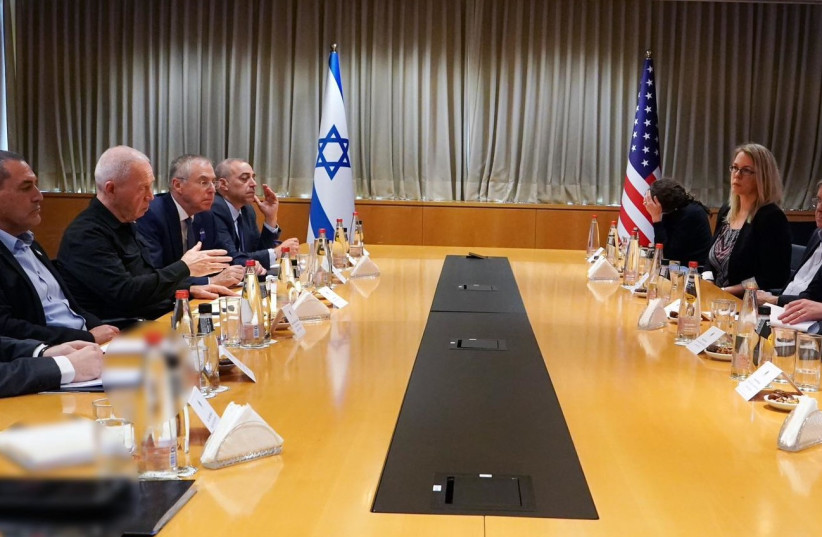Defense Minister Yoav Gallant on Thursday told US National Security Adviser Jake Sullivan that it will take more than a few more months to finish off the Gaza war with Hamas.
Although this would seem to pit Israel in serious tension with the US timeframe for finishing the war in the coming weeks, the Jerusalem Post has clarified that Gallant was referring to the expected counter-insurgency stage of fighting Hamas.
In other words, Gallant and other defense officials would still stand by the end of January as an expected endpoint for the main invasion will the full volume of multiple IDF divisions involved.
Rather, even after the main invasion is considered concluded and IDF forces in Gaza are reduced to a number which can be maintained over a longer period, it has been expected that the IDF will need to fight smaller battles against insurgents for three to nine months.
The defense minister explained that Hamas had spent years creating its terror forces and infrastructure and that taking all of this vast network apart would require much longer than the initial full invasion stage.

Gallant thanked the US "for its unqualified support."
Sullivan is visiting Israel at a critical point in the conflict with the Biden administration seeking to decide how much longer it will go on protecting Israel from global pressure for an immediate ceasefire. In addition, the two governments have engaged in a series of unusually public jabs at each other about if and to what extent the Palestinian Authority will be involved in running Gaza once Israel withdraws.
In addition, the defense minister said he discussed with Sullivan the question of how to neutralize the threat posed to Israel by Hezbollah in the North.
Along with that issue, Gallant explained how important it is to create new security realities that will allow Israel's tens of thousands of evacuees from the North to return to their homes.
Pressure from the US on Israel on the global stage
The US has been a major pressure on Israel not to engage in a broader fight with Hezbollah and Jerusalem has hoped that Washington will repay some of its restraint by leaning hard on the terror group to keep its forces farther away from the northern border than it has since the 2006 Second Lebanon War.
After that war, UN Security Council Resolution 1701 mandated that Hezbollah stay out of southern Lebanon, but shortly after, the group systematically violated those limits.
In addition, Gallant said Israel welcomes a global approach to holding off maritime threats from the Yemen Houthis, though he said any attack on an actual Israeli ship would lead to a direct Israeli response.
